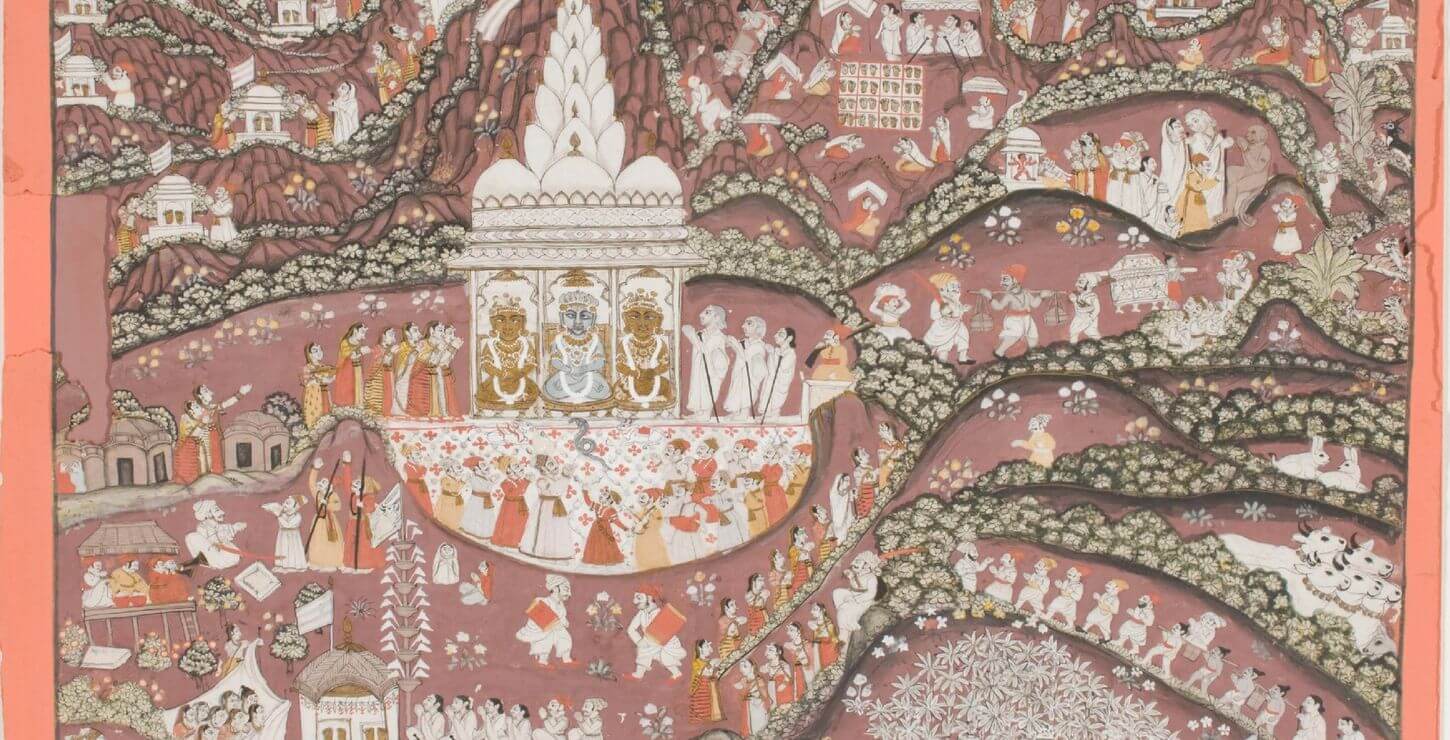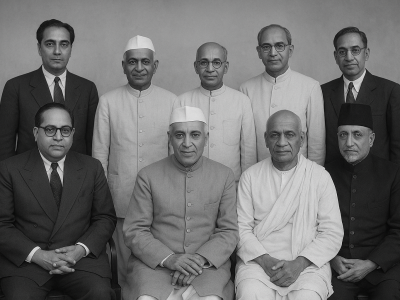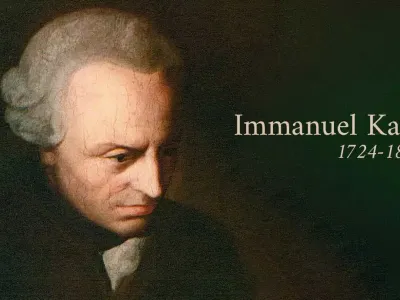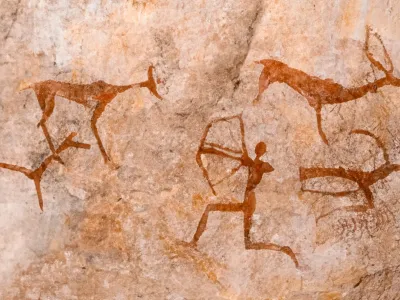Exploring the Rationalist Roots of Jainism: A Hypothetical Journey to China

Jainism, one of the oldest religions in the world, thought to be emerged in ancient India around the 6th century BCE. Known for its profound commitment to non-violence (ahimsa), truth (satya), and asceticism, Jainism has a rich philosophical tradition that emphasizes self-discipline, ethical living, and spiritual purity. Followers of Jainism adhere to strict dietary restrictions and practice rigorous self-control to minimize harm to all living beings, reflecting their deep reverence for life.
The Hypothesis: Jainism's Origins in China
While the traditional narrative places Jainism's origins firmly in India, a rationalist perspective invites us to consider an unconventional hypothesis: could Jainism have roots in China? This idea, though speculative, encourages a re-examination of historical and philosophical exchanges between ancient civilizations.
Ancient China was a hub of philosophical thought, with schools of Confucianism, Daoism, and Buddhism flourishing and influencing each other. This fertile ground for ethical and rational discourse could plausibly have given rise to or influenced the development of Jain principles. The rationalist ideals inherent in Jainism—such as the focus on ethical living and non-violence—resonate with the philosophical traditions of ancient China, suggesting a possible cross-cultural genesis.
Ethical Rationalization of the Jain Diet
One of the most defining features of Jainism is its strict dietary code. Jains follow a vegetarian diet, avoiding root vegetables like onions, garlic, and potatoes to prevent harm to microorganisms in the soil. This practice is rationalized as an ethical choice, aligning with the principle of ahimsa.
However, a critical examination reveals that the Jain diet, while ethically framed, functions similarly to dietary laws in other religions. It adheres to a fixed rule set often driven more by religious doctrine than by health considerations. For example, the prohibition of root vegetables stems from the belief that uprooting these plants causes harm to countless micro-organisms, rather than from any nutritional rationale.
Microbial Life and Ethical Considerations
Jains' meticulous avoidance of harm extends to the microscopic level. This ethical rigor leads them to exclude foods like onions and garlic, which grow underground and potentially disrupt microbial life. Nonetheless, it's important to recognize that all food, whether grown above or below ground, supports microbial ecosystems. This selective focus highlights the religious underpinnings of Jain dietary rules, even as they are presented within an ethical framework.
Dharma and Ethical Conscience
For any dharma (moral duty or ethical law) to be meaningful, it must be grounded in a clear conscience and ethical principles. If a religious practice does not inherently foster a clear ethical conscience, it necessitates re-evaluation and adjustment. Jainism's strict adherence to non-violence is a profound example of ethical dharma, but it also illustrates the challenges of balancing religious doctrine with rational ethical considerations.
The Relation of Tian to Atma in the Jain Context
In exploring the potential connections between Jainism and ancient Chinese thought, a fascinating parallel emerges between the concepts of Tian in Chinese philosophy and Atma in Jainism.
Tian: The Divine Sky
In Chinese philosophy, Tian (天) is often translated as "heaven" or "sky." It represents a supreme cosmic force that governs the universe and the moral order. Tian is not a personal god but an impersonal power that embodies the ultimate reality and natural order. It is associated with the Mandate of Heaven, which bestows legitimacy on rulers and emphasizes the importance of virtue and morality in governance.
Atma: The Eternal Soul
In Jainism, Atma (or Atman) refers to the eternal soul, the true self that exists in every living being. The soul is characterized by consciousness and is considered inherently pure. However, through the cycle of birth and rebirth, it becomes entangled with karma, which obscures its true nature. The ultimate goal in Jainism is to liberate the Atma from the cycle of samsara (rebirth) and achieve moksha (liberation), where the soul attains its pure, omniscient state.
Philosophical Parallels
Impersonal and Universal Forces:
Tian: As an impersonal cosmic force, Tian governs the moral and natural order of the universe. It emphasizes harmony, virtue, and the proper conduct of individuals and rulers.
Atma: The Atma in Jainism represents the individual soul that is part of the larger cosmic order. It emphasizes the purity, consciousness, and intrinsic value of every living being.
Moral and Ethical Dimensions:
Tian: The concept of Tian is deeply intertwined with morality and virtue. It mandates ethical conduct and the harmonious functioning of society.
Atma: Jainism’s focus on non-violence, truth, and self-discipline is rooted in the belief in the inherent purity and potential of the Atma. Ethical living is essential to liberate the soul from karmic bondage.
Natural Order and Liberation:
Tian: Represents the natural and moral order that individuals must align with to achieve harmony and balance in life.
Atma: The journey of the Atma is about aligning with its true nature by shedding karmic impurities, ultimately achieving liberation and harmony with the cosmic order.
Integration of Concepts
While Tian and Atma emerge from distinct philosophical traditions, their integration offers a profound insight into the universal quest for ethical living and spiritual liberation. Both concepts emphasize a deep connection with the cosmic order and the importance of living virtuously.
In the context of Jainism, considering Tian alongside Atma enriches the understanding of how ancient philosophies from different cultures converge on similar ethical and spiritual ideals. It suggests a shared human endeavor to comprehend the universe and our place within it, guiding us towards a life of virtue, balance, and ultimately, spiritual fulfillment.
Revisiting the origins of Jainism through a rationalist lens broadens our understanding of its historical and philosophical context. The hypothesis of Chinese roots, while speculative, opens up new avenues for exploring the interplay between ancient civilizations. Additionally, the ethical rationalization of Jain dietary practices underscores the complex relationship between religious traditions and rational thought.
Whether Jainism's origins lie in India or China, its teachings continue to inspire a commitment to non-violence and ethical living. As we reflect on these principles, it becomes clear that a truly ethical dharma must be rooted in both a clear conscience and a rational understanding of the world.









